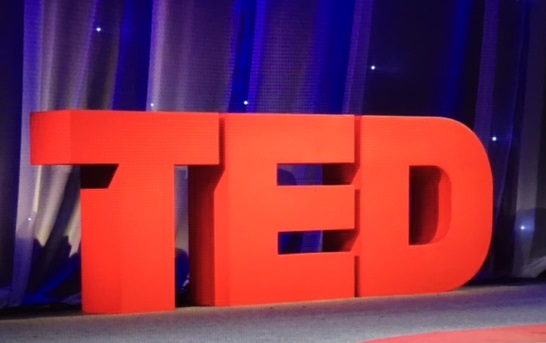While we can rewind to 1984 for the original TED talk—what a symbolic year for spreading new, revolutionary thoughts!—or even skip ahead to 2006 for the first online TED Talks—yes, Al Gore was one of the trailblazers!—I like to go back even further to 1863 as the true founding of the TED Talk as we know it today. Following a speech of over 2 hours, Abraham Lincoln proclaimed in a measley 2 minutes what would become a revolutionary synthesis of American history and ideals: the Gettysburg Address. So concise that the photographers of the day missed capturing it in their frames and much of the audience didn’t yet fathom its depth, Lincoln ushered in a new mode of educating the public. Ever the poet, Lincoln knew that it was the distillation of the big idea itself and its mighty call to action that truly spoke the loudest. And so, in my little semi-imaginary story, the TED talk, an act of poetry itself, was born!
Like Lincoln’s address, I believe that a TED Talk is a “poem masquerading as a conversation.'”A standard presentation, which has a lot more set-up–detailing where you are going, how you are going to get there–reads like prose. Some might say, it tells a bit more than it shows. Longer, less conversational, it is nearly five times the length of a typical TED. It’s still a wonderful form, and in the hands of great speakers, it can also feel poetic as well, but it will be so in the way that Fitzergald was poetic in his prose, not the way Shakespeare was in his sonnets!
The power of poetry lies in its capacity to move not only with its taut and multivalenced diction, but also through its built-in moments of sheer revelation: the turns themselves. Superb surprises, to echo Emily Dickinson, these moments have a way of taking off the top of your head, of having you see something that might be quite ordinary on another day, had your mind and heart not been turned by the poetic act itself. This is TED! TED works through this wonderful connection between artist and audience, where the poet lays out the materials on the table and you become the magician in the listening. As TED speakers like to say, the audience becomes the hero!
Robert Frost counseled, “No surprise for the writer, no surprise for the reader.” That’s why you’ll also find so many TED speakers delighted and enchanted by their movement through the process of their talks—they are playfully pursuing their ideas and rediscovering it with you. You are in on the trick and are part of making it happen!
There’s another important reason many TED speakers are so relaxed and casual up on stage. Again, they are following the words of the poet—Wordsworth in particular—who defined poetry as the ‘spontaneous overflow of powerful feeling… recollected in tranquility.” In their poetic crafting of the talk, TED speakers find the portal to connect to this wave of emotion and to retell it from a place where they are truly centered. The potent ideas and feelings have been forged into a form, one that is now free to be conversational.
The compressed form is both the great challenge and great fun of the talk itself. Just as “poetry without rhyme and meter is like playing tennis without a net” (Frost again!), a TED Talk without a distilled set of big ideas and their ensuing calls to action, feels like something without the necessary ‘big bang’ of creation. As Emily Dickinson put it, to be inside a TEDTalk, is to “dwell in possibility/a fairer house than prose.”
This is the wonder and delight of the TED form, our 21st century version of the sonnet. It speaks across oceans and cultures for a primal need we have to connect, to reenvision, and to delight in the possibility that is poetry itself!
A recent Ted-x Tarrytown speaker, Michael Alcee, Ph.D is a psychologist and consultant who revels in helping people develop their ‘big ideas’ for Ted. If you are interested in finding out more about how Michael can help you develop your poetry for the Ted stage, contact him at [email protected].


